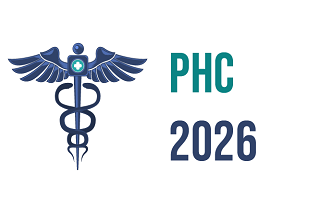5th International Conference on
Primary Health Care
November 26-27, 2026 | Dubai, UAE

Address: Al Barsha, Al Barsha 1, Dubai, United Arab Emirates
PHC 2026

Charter University NCBA&E Main Campus Lahore, Pakistan
Abstract:
The growing global load of chronic diseases emphasizes the need for creative diagnostic technologies guaranteeing early identification, effective monitoring, and individualized therapy. Early and accurate diagnosis of chronic disease is one of the key challenges for global healthcare professionals. The increased frequency of chronic illnesses needs innovative diagnostic approaches to improve healthcare availability, accuracy, and affordability. Diagnosis is a fundamental service provided by healthcare agents for improving patient health. However, diagnosis errors result in treating the patient incorrectly or at an improper time causing harm to them. Digital health data consists of various information, including diagnoses, treatments, and medications. The tremendous growth of medical digital data has changed the capability of machine learning algorithms, generating more salient information. This research describes a novel telemedicine framework called an Intelligent Cognitive Diagnostic System, which is intended for the early diagnosis and monitoring of chronic illnesses. The system combines Cognitive Medical Robotic Technology, the Internet of Medical Things (IoMT), wearable devices for real-time patient data collecting and powerful machine learning (ML) algorithms such as Advance Neural Network (ANN) to provide a breakthrough solution for improving diagnostic precision, accessibility, and efficiency. In this study, a simple concept of a cognitive robotic chronic disease diagnostic system has been presented. The goal is to create an intelligent system that acts as a human assistant, who perceives the situation, understands the situation based on his knowledge and acts appropriately. The cognitive skills of robotic technology mimic human thinking, allowing the system to analyze complex patient data enabling precise diagnosis and personalized treatment recommendations. The results demonstrate that this cognitive diagnostic platform outperforms traditional diagnostic methods in terms of accuracy, efficiency, and patient satisfaction.
Biography:
Dr. Zahid Hasan completed his PhD in Computer Science at the age of 45 years from a high-rank chatter University NCBA&E of Pakistan. He is the director of Advanced Study & Research (DASAR) He has been serving as an Associate Professor in the Computer Department of NCBA&E since 2016. He has published more than 25 papers in reputed journals and has been serving as an editorial board member of well well-reputed Institute of the city.
